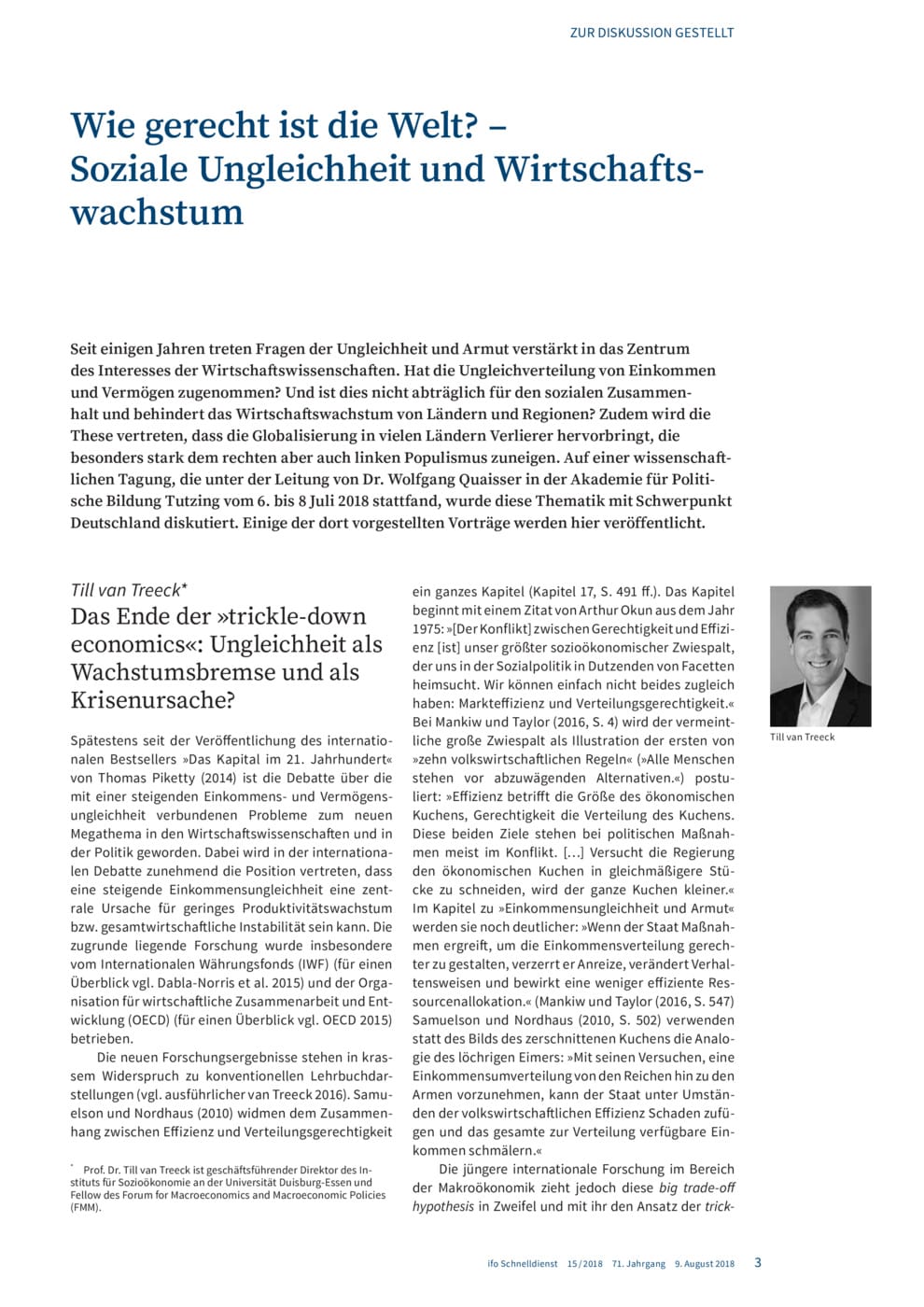How Fair Is the World? – Social Inequality and Economic Growth
ifo Institut, München, 2018
ifo Schnelldienst, 2018, 71, Nr. 15, 03-25

Issues of inequality and poverty have attracted the attention of economists for several years. Has inequality in income and assets increased? And will this not damage social cohesion and hinder the economic growth of countries and regions? It is also frequently argued that globalisation creates losers in many countries, who are particularly strongly attracted to both right and left-wing populism. At a scientific conference supervised by Wolfgang Quaisser held on 6 to 8 July 2018 at the Akademie für Politische Bildung Tutzing, this topic was discussed with a focus on Germany. Till van Treeck, University of Duisburg-Essen, sees indications that shifts in income distribution have helped to create unsustainable growth models in various countries. The development of inequality and its overall economic effects crucially depends on country-specific institutions. While the USA has been characterised by sharp increases in the income of top earning households in recent decades, developments in measures of personal income distribution for Germany have been less dramatic. Judith Niehues and Galina Kolev, Institut der deutschen Wirtschaft, Cologne, show that the frequently cited negative relationship between income inequality and economic growth does not apply in many cases, and especially in countries with a high level of development and lower levels of inequality by international comparison. Basically, it can be said that it is difficult to identify the causal effects of inequality on economic growth. Piotr Pysz, Hochschule für Finanzen und Management, Białystok, primarily sees external causes for the inequality in Central and Eastern European countries, namely 40 years of the “socialist experiment.” After over 25 years of change, however, the “economic wonder” expected after the liberal revolution has only been realised for a small demographic group, giving rise to anti-liberal counter movements in Eastern Europe. Peter Hampe, Technical University of Dresden, highlights that the “social” in “social market economy” is based on three different pillars, namely the social effects of the market economy itself, social benefits and the social targets set by German economic policy. Around 45% of Germans nevertheless do not believe that the present economic order is sufficiently socially equitable. This can partly be explained by the fact that the real income situation of most Germans has hardly improved since reunification, and has even deteriorated for some, but has improved significantly for top income earners. Social policy needs to be designed more sustainably, in a more targeted way and more efficiently. Andreas Peichl and Marc Stöckli, ifo Institute, argue that developments in income inequality in Germany are better than they have been presented as in the public debate. If composition effects are taken into account, it emerges that there has been a downward trend since 2005. Germany does not perform poorly in terms of fairness either. At the same time, there is a need to reform the high effective marginal burden on low-income households due to the loss of social welfare transfers. From an equal opportunities viewpoint, early childhood education should be expanded. Georg Cremer, formerly Deutscher Caritasverband, sees a discrediting of basic social security provision in the public debate in Germany that is blocking the reform approaches needed for poor people and below average earners. He also calls for greater fairness for low-income families and a more targeted approach to fighting old-age poverty.